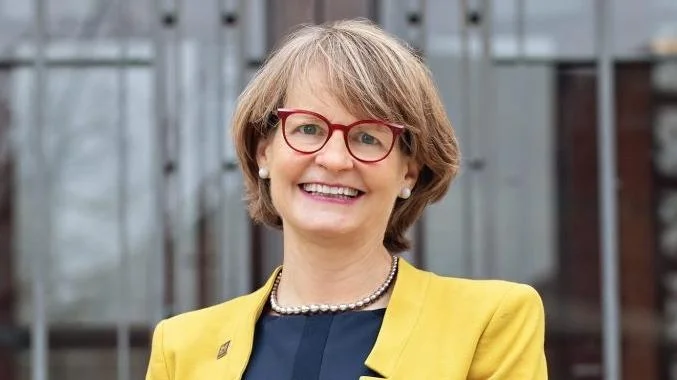Laurie McCauley Provost and Executive Vice President for Academic Affairs | University of Michigan-Ann Arbor
Laurie McCauley Provost and Executive Vice President for Academic Affairs | University of Michigan-Ann Arbor
A recent study from the University of Michigan highlights the increasing involvement of friends, ex-spouses, and neighbors in caring for older adults with dementia. Despite this shift, current surveys and policies often only recognize spouses and children as caregivers.
The research, published in the American Journal of Alzheimer’s Disease and Other Dementias, involved six focus groups with 33 family and friend caregivers. The findings indicate that narrow definitions of “family” in policy and data collection do not reflect how care is provided in practice.
“Caregiving for an older adult with dementia is a family and community affair,” said Sarah Patterson, demographer and sociologist at the University of Michigan Institute for Social Research. “We found that it was not just the ‘nuclear’ family members, such as partners or adult children, who were providing help to these older adults in our community, but it was also extended family and friends chipping in.”
The study points out that caregiving policies often focus on legal or biological relationships. However, many participants described non-relatives—such as neighbors or long-term friends—as being part of their support networks.
“Many described neighbors, paid caregivers and long-term friends as family or ‘like’ family,” said Kelsi Caywood, a doctoral student in sociology at U-M. “People’s definitions of family vary, but often in patterned and explainable ways. For example, those who provided ongoing care and developed emotional closeness with an older adult were frequently seen as family.”
In 2022 alone, 5.2 million unpaid caregivers assisted adults aged 65 or older living with dementia.
The researchers emphasize a gap between official definitions used by surveys or policies and real-life caregiving experiences: while existing measures tend to be restrictive about who counts as “family,” actual support networks are more flexible.
“As one of our participants noted: ‘Families are messy, aren’t they?'” Patterson said. “Our findings show that older adults’ family dynamics greatly impact their care and caregivers. Memory loss could complicate these family histories, sometimes preventing older adults from recalling negative dynamics, including their own or others’ behavior. Even nonfamily caregivers experienced the influence of these dynamics on care provision.”
The study calls for broader recognition by researchers and policymakers when defining families for survey purposes or designing support programs.
“Considering older adults with dementia often rely on a broad network, we must therefore ensure our communities support both those with dementia and their caregivers,” Patterson said. “We also found a striking lack of planning for later-life care. This suggests the public should prioritize early care planning and policymakers should back programs that facilitate it.”
Researchers found that many people become caregivers unexpectedly because few had formal plans for future needs; limited availability within families increases pressure on individual caregivers.
“Not every older adult who needs care has family available to care for them, including those with very small families, strained relationships or no surviving kin,” Caywood said. “As a result, individual caregivers may find themselves shouldering higher care responsibilities than they expected, with few additional caregivers to fall back on
Patterson explained that this research is part of a larger effort to improve survey tools so they better capture caregiving experiences amid changing social networks—and within contexts like memory loss among recipients.
“We will continue to analyze information about who we expect to care for older adults with dementia in the context of changing families,” Patterson said. “For instance, stepfamilies often function differently than biological families, and caregiving dynamics can change within the context of different impairments that the older adult experiences. Some of the upcoming projects include understanding whether we expect lifelong friends to help with later-life care needs, as well as caregivers’ feelings of choice.”






 Alerts Sign-up
Alerts Sign-up